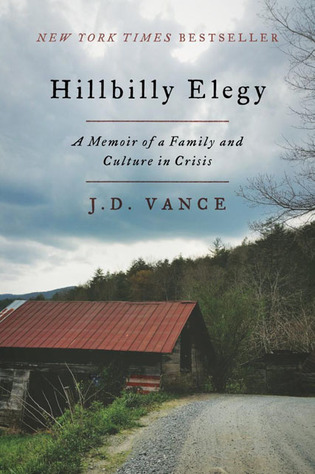 loading
loading
Reviews: January/February 2017 View full imageHillbilly Elegy: A Memoir of a Family and Culture in Crisis Mark Alden Branch ’86 is executive editor of the Yale Alumni Magazine. Vance’s book is not essentially about politics, though. It’s a harrowing personal account of his upbringing in a troubled Appalachian family with a drug-addicted mother, a “revolving door of father figures,” and two irascible grandparents. The grandparents had moved to an Ohio factory town from the hills of Kentucky after World War II, trading a rural way of life with deep family ties for economic opportunity. Many of their generation found success this way, but subsequent generations—like Vance’s and his parents—have fallen behind, lacking education and access to decent blue-collar jobs. Vance writes, “From low social mobility to poverty to divorce and drug addiction, my home is a hub of misery.” Vance’s way out was through the military. The Marines taught him not only discipline, but also about things like fitness and personal finance. After serving in Iraq, he went to Ohio State and then Yale Law School. (He once phoned his girlfriend from the men’s room of a New Haven restaurant to ask what fork to use at a law firm recruiting dinner.) He now works in venture capital in San Francisco. Vance is a self-identified conservative, but in assessing the problems facing families like his own, he is candidly ambivalent about whether they are a matter of personal responsibility or broader cultural issues. He is equally ambivalent about whether government has a role in solving them. In the end, however, Vance is addressing his own kin, urging them to recognize the ways that their culture is holding them back. “Whenever people ask me what I’d most like to change about the white working class, I say, ‘The feeling that our choices don’t matter.’”
|
|